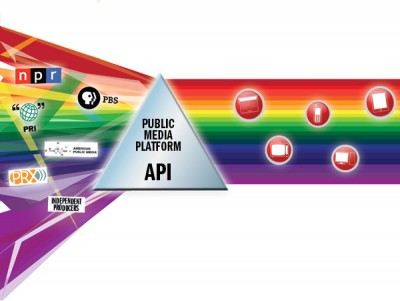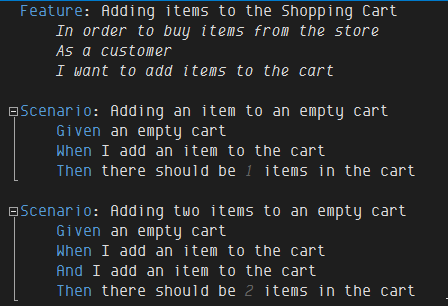API Spotlight: Vitadock, Viki, and Collaboration With Fleetly
Updated: 2012-12-31 01:12:46
Of the many APIs we published this week, six were highlighted on the blog by our team of writers. In this post, we’ll launch those six into the spotlight, which included the Flexpaper API. Flexpaper is an open source document viewer. Functionality allows documents to be annotated: highlighted, commented, underlined, and drawn on. The API displays in HTML, HTML5, Adobe Flash or any combination of the three.

 The Stipple API is free, has no request limits as of yet, and OAUTH 2 will be supported in the future. According to its website on the API, it is "inspired by REST". Stipple announces its rare downtime, which is usually used to migrate data, via its twitter account.
The Stipple API is free, has no request limits as of yet, and OAUTH 2 will be supported in the future. According to its website on the API, it is "inspired by REST". Stipple announces its rare downtime, which is usually used to migrate data, via its twitter account. POEditor's goal is simple: "A simple way to translate your software." POEditor accomplishes this task through a global community of translators who can work on needed translations or launch projects of their own. POEditor developed as a browser-based software localization tool. However, developers can now leverage the platform within existing sites and apps with the POEditor API. The API calls project related data and allows developers to track progress and users to work on projects.
POEditor's goal is simple: "A simple way to translate your software." POEditor accomplishes this task through a global community of translators who can work on needed translations or launch projects of their own. POEditor developed as a browser-based software localization tool. However, developers can now leverage the platform within existing sites and apps with the POEditor API. The API calls project related data and allows developers to track progress and users to work on projects. Tried of American TV? Tired of TV in English? Escape to Viki, the leading global TV and movie network, which provides videos with crowd sourced translations in 150 languages. The Viki API allows your users to browse more than 1 billion videos by genre, country, and language, plus search across the entire database. The API uses OAuth2.0 authentication, REST, with responses in either JSON or XML.
Tried of American TV? Tired of TV in English? Escape to Viki, the leading global TV and movie network, which provides videos with crowd sourced translations in 150 languages. The Viki API allows your users to browse more than 1 billion videos by genre, country, and language, plus search across the entire database. The API uses OAuth2.0 authentication, REST, with responses in either JSON or XML. VitaDock includes a family of software applications and physical monitors that allow users to monitor vital data across multiple devices. VitaDock Online enables synchronization of VitaDock data (e.g. blood sugar, weight, temperature, etc.) between multiple apps and mobile devices. VitaDock Online released an the VitaDock API that allows developers to connect apps and websites to VitaDock Online.
VitaDock includes a family of software applications and physical monitors that allow users to monitor vital data across multiple devices. VitaDock Online enables synchronization of VitaDock data (e.g. blood sugar, weight, temperature, etc.) between multiple apps and mobile devices. VitaDock Online released an the VitaDock API that allows developers to connect apps and websites to VitaDock Online. Last week, National Public Radio (NPR) announced the formation of a new non-profit organization to oversee development of a Public Media Platform (PMP) which "will allow public media producers and stations to gather their digital content in one place, and cost-effectively distribute it across digital platforms." The PMP also received $8 million in funding from the Corporation for Public Broadcasting (CPB) to support building APIs to provide access to that content.
Last week, National Public Radio (NPR) announced the formation of a new non-profit organization to oversee development of a Public Media Platform (PMP) which "will allow public media producers and stations to gather their digital content in one place, and cost-effectively distribute it across digital platforms." The PMP also received $8 million in funding from the Corporation for Public Broadcasting (CPB) to support building APIs to provide access to that content. They say it’s the Age of the Consumer because people have more access to a lot of information about any given product they buy or vendor they do business with. But for all that information one thing most of us don’t have much control over is the rewards programs their credit cards generated points towards every time they buy something.
They say it’s the Age of the Consumer because people have more access to a lot of information about any given product they buy or vendor they do business with. But for all that information one thing most of us don’t have much control over is the rewards programs their credit cards generated points towards every time they buy something. A big thanks to everyone who attended my sessions earlier this week at DevTeach. When I give a presentation, my success criteria is that I get you excited enough to continue investigating the topic yourself. So an extra special thanks … Continue reading →
A big thanks to everyone who attended my sessions earlier this week at DevTeach. When I give a presentation, my success criteria is that I get you excited enough to continue investigating the topic yourself. So an extra special thanks … Continue reading →